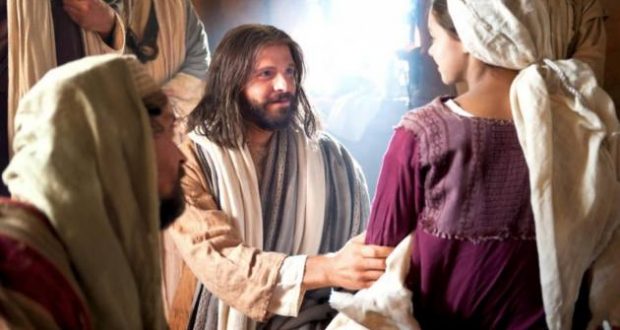Jesus Chooses Not to Leave Us In The Conditions Where He Finds Us
Taken from a Red Rock News Article

Rev. Dona Johnson | July 14, 2024
For anyone who has had a seriously sick child or a loved one taken ill, knows the deep pain and anguish that comes when you’re waiting for some sign of recovery to happen. The pain of not knowing the final outcome. Where the wavering back and forth between hope and despair can be quite upsetting.
Jairus who was a ruler in the synagogue experienced that same type of trauma when his young daughter had taken ill. Jairus was a well known member in his local community and a respected leader in the synagogue. But something happened to him the day his young daughter died. In his desperation, his thoughts turned to Jesus. Had Jairus forgot his prejudices? Anyone in the Jewish ruling class knew Jesus was someone to steer clear of, an outlier and a dangerous heretic. But at the death of his daughter, Jairus humbled himself and fell at Jesus’ feet begging for help— save my daughter’s life. Few things have done more to hold things back from moving in the right direction than our prejudices.
Jesus was deeply moved by Jairus’ situation. So, he calls upon Jairus’ faith, telling Jairus that now is not the time to give up, but instead to keep on in the faith. Jesus then goes to Jairus’ home. Death had struck this little household; people were sobbing as if all hope had run out. Jesus calmed the crowd. He tells them not to worry, that the child is only asleep. Then taking Jairus, his wife and his inner circle Peter, James and John, he cleared the house. He walked over to the young child and takes her hand. He calls out to her in Aramaic, “Talitha cum,” which means “little girl get up.” Time stood still for a moment. For those standing there could hear their own hearts beating in their chests. Instantly the girl sighed, took a deep breath, sat up and began to walk around the room. Using just his words he resurrected her from the dead, fully restored to the point of walking around and needing to eat some food. Whether she was dead or sleeping in a coma, this was by far a miracle healing.
It was not just the life of the little girl that Jesus gave back, but also the life of the father and the mother. In fact the worst thing that could have happened became the best thing that had ever happened to them—they had witnessed the power of God to give back life! Who can say for sure exactly what Jesus did in that house or how far down into the darkness he had to reach to do it, but in a way who cares any more than her mother and father could have cared. They had their child back. She was alive again, and that was all that mattered.
There are many times when we feel as if life has been taken from us—the death of a loved one or a relationship, the loss of health through acute or chronic illness, the sudden death of a lifestyle that you have so loved and grown accustomed to and of course the death of a dream—a career, having children or the desire to be married. And those losses can truly shake us at our core. But Jesus chooses not to leave people in the condition in which he finds them. He has the power to alter their conditions. Jesus says to us in those moments when we want to quit, when life gives us no other options, when we feel only partly alive, Jesus comes to us and says, “Little boy, little girl get up.” Life is not over—there are miracles all around you.
Can the Christian community alter the conditions of people’s lives? Can it, too, bring healing into troubled circumstances? Must it not also cross boundaries of pride, prejudices and conquest — whether they are related to ethnicity, gender, race, politics or any other boundaries that divide our society, and advocate life-giving meaning and change? The answer is yes! Amen.
